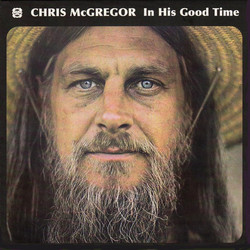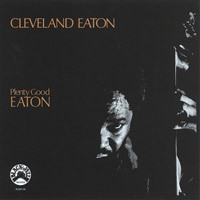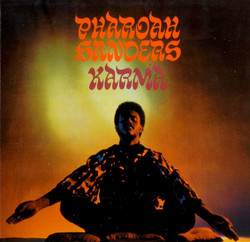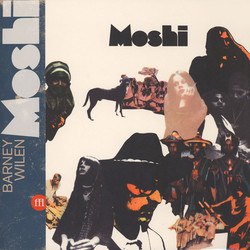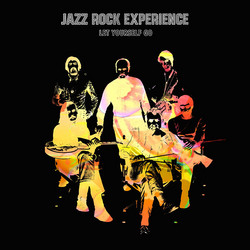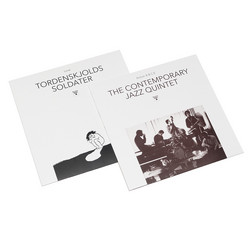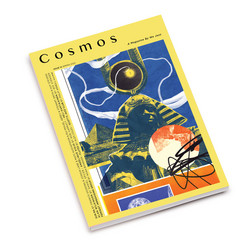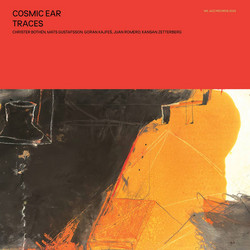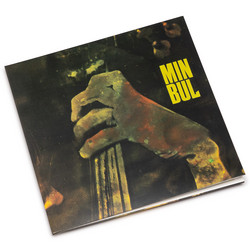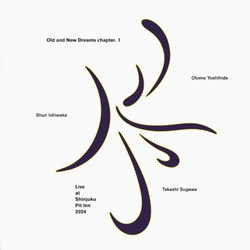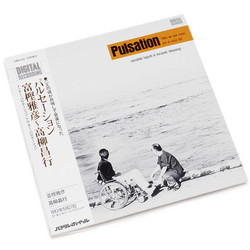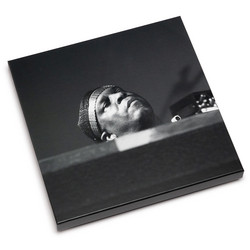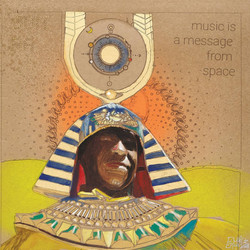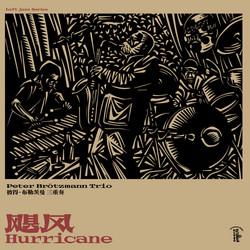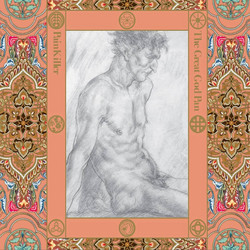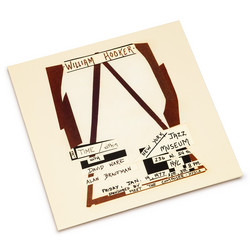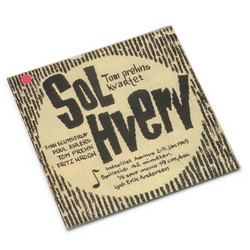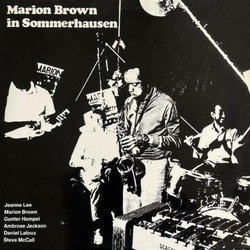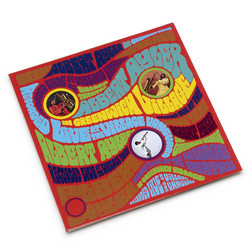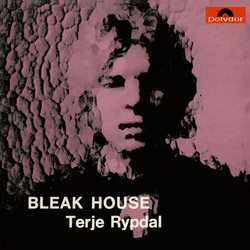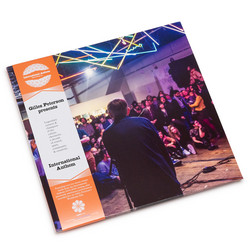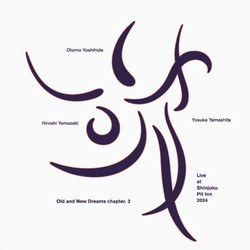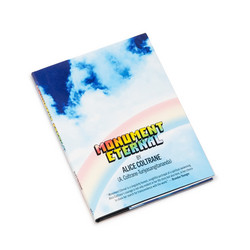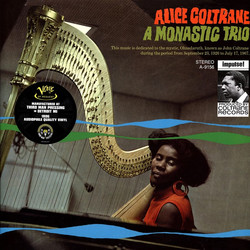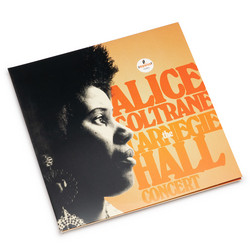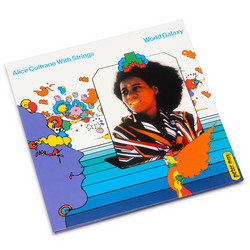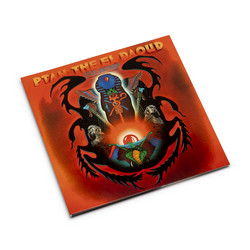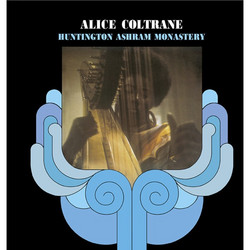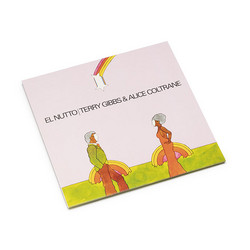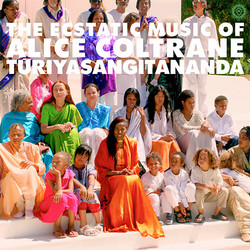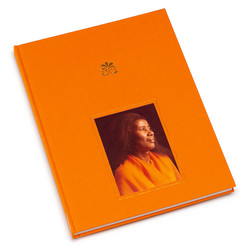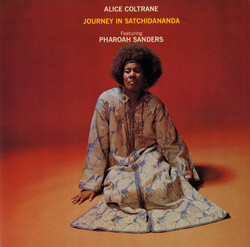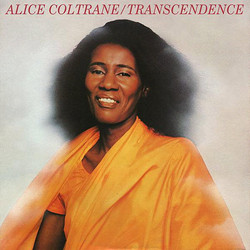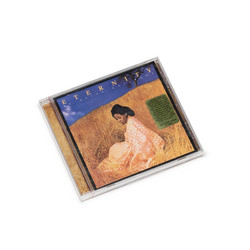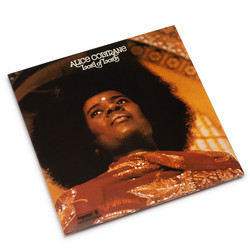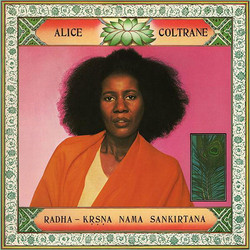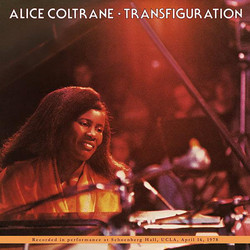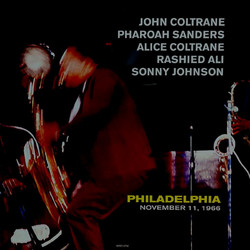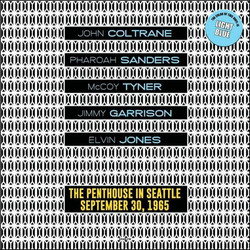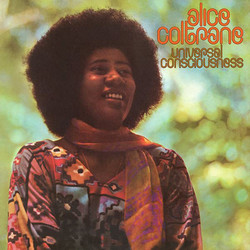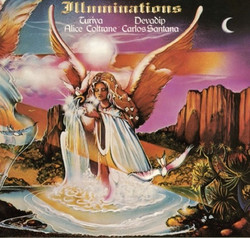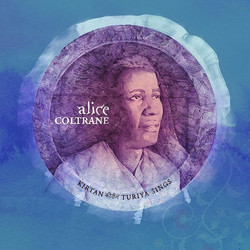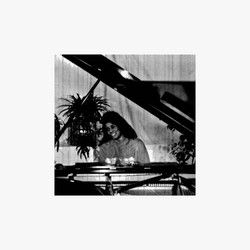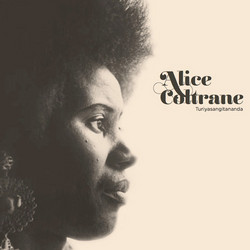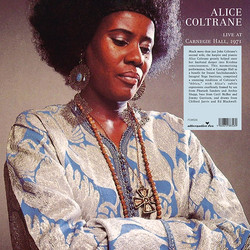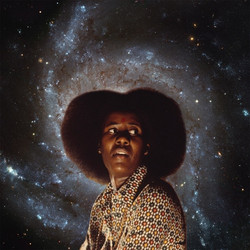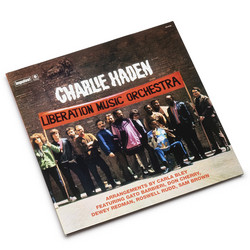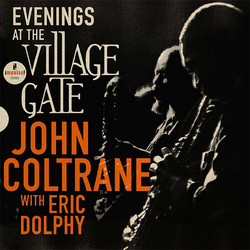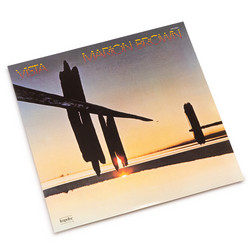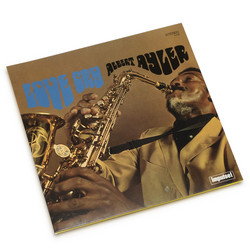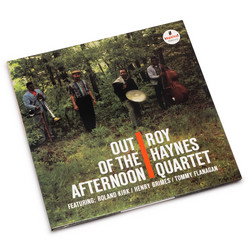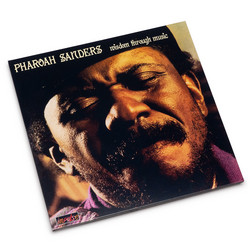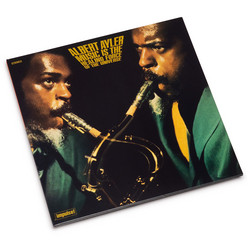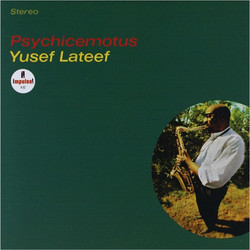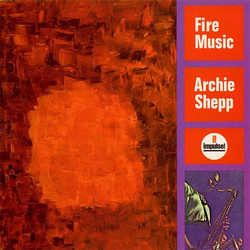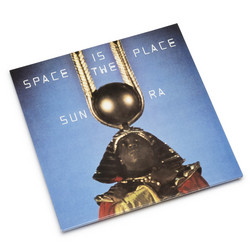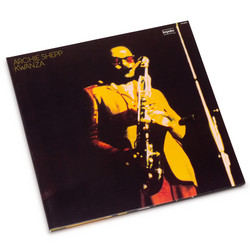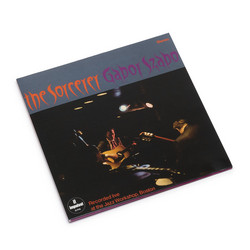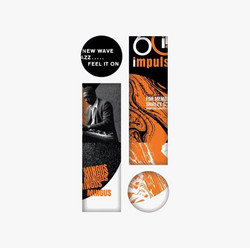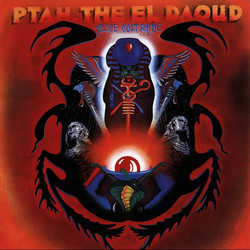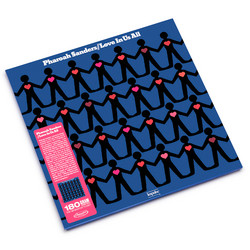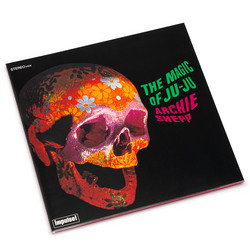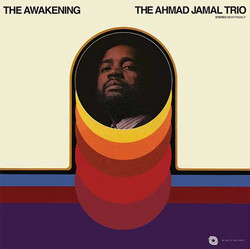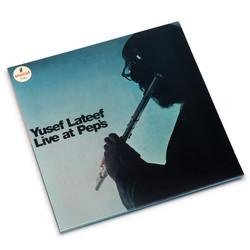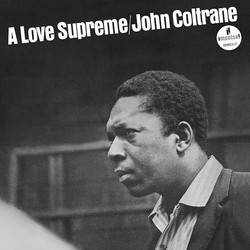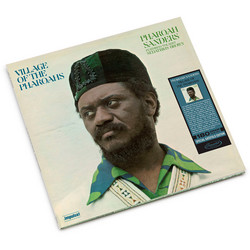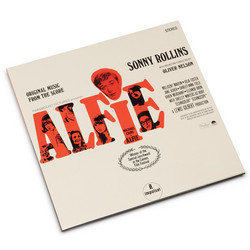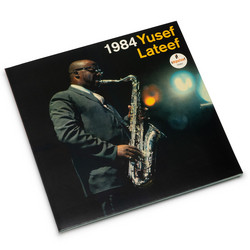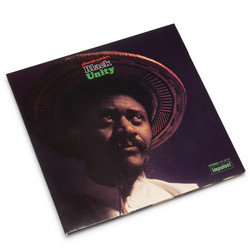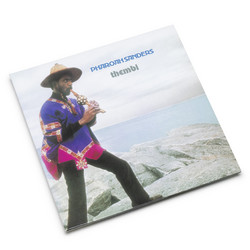1
2
3
Alice Coltrane
Universal Consciousness / Lord Of Lords
Two seminal early 70s Alice Coltrane albums on one CD. "It may seem unfair at first to mention John Coltrane -- Alice's beyond-famous husband -- when talking about her music, but listening to Alice Coltrane, you get the impression you can't mention her without talking about John. In an interview with Alice Coltrane -- originally from the September 1968 issue of Jazz and Pop magazine, but later reprinted in the liner notes for then 1998 Impulse! reissue of her first solo record, A Monastic Trio -- she recalls John telling her about looking for that "universal sound" saying that "John not only taught me to explore, but to play thoroughly and completely." She concludes that "You have got to stress the freedom of music to really branch out and be universal." Ultimately, Alice Coltrane's goal was to continue John's search for that sound, the one that reached beyond chord progressions, beyond horn vamps, beyond genre. This change began in the second-half of John's career, when Alice took over piano duties from McCoy Tyner and Pharoah Sanders joined the band. The expansive, often manic and unruly sounds that Coltrane's band played called into question just what music could do, how it could sound, how far it could reach. But, perhaps more importantly to Alice's career that followed, it makes you question just what exactly jazz music is. Because in the end, to call Alice Coltrane's work -- and really her husband's later work too -- jazz is merely convenient for us, and damagingly restrictive for the music itself. 1972's Universal Consciousness and Lord of Lords -- now back in print together on this new reissue -- reveal two distinct sides of Alice Coltrane's sound, showing both her understanding of jazz without bending to it and her love of both western and Indian classical music. They are difficult, heavily layered albums, but in the end their dense sound is not one built to keep us out, but rather the way these records pulse with life and Coltrane's irrepressible spirituality and generosity as a player brings us into the sound and transfixes us. Universal Consciousness builds nicely on albums that came before it. It grows out of the unbridled celebration of her late husband's life on A Monastic Trio and the soulful wanderings of her most well-known record, Journey in Satchadananda. The music on Universal Consciousness is as expansive and exploratory as those records, but it is also deeply tense. That tension, however, is nothing malevolent. This music wants to crack you wide open, make no mistake, but not to root around in the wound. Instead, it breaks you of ideas of structure, of order, and gets down into feeling. It pushes you not to peel apart the individual pieces, but rather to see the connections between them. The title track, for example, moves from squealing strings to tumbling organ to those taut strings again so they can engage in a fascinating back and forth with the dreamy pluck of Coltrane's harp. The whole album shifts this way, as one song melds into the next so that Universal Consciousness is one complete sound from beginning to end. The instruments begin to bleed together -- you can hear the difference between harp and organ, but it doesn't quite register the feeling is so similar -- and the other players fall right into this off-kilter groove. Bassist Jimmy Garrison runs his notes down whatever rabbit hole presents itself in the sound. Jack DeJohnette, who drums on a few tracks here, has the kind of improvisational skills to keep up with Coltrane's vision. He jumps all over the drums and the cymbals, but somewhere in all his fills the rhythm remains, even when he's left it behind. The album is a beautiful, if challenging, sound, one that seems to carry all of Alice Coltrane's musical interests and her devotion to faith and to her husband's memory, and the results are jarring but joyous. If this album wants to crack you open, though, wants to force you out of your comfort zone, Lord of Lords rewards you for that breakthrough. This record, her last for Impulse!, finds Coltrane bringing her universal sound to a string orchestra. Here, her band is the same throughout, with Charlie Hayden on the bass and Ben Riley on drums. The uniformity of the band, and the size of the orchestra, gives Lord of Lords a more settled feel than Universal Consciousness, though it is no less wandering and expansive. But where its predecessor threw fits of joy, kicked up dust with its fiery dance, Lord of Lords soars. The sheer breadth of this sound is staggering, and the way it places the formal orchestral parts alongside Coltrane's experimentalism sounds remarkably fluid. To hear the dramatic phrasings of the orchestra, coming in powerful rundowns on tracks like "Andromeda's Suffering", rolling over Riley's heavy cymbal clanging and Coltrane's own vibrant starts and stops is as impressive as it is unsettling. Unruly as it may be, there's a lightness here, an acceptance of joy, an ease within the wandering. Up to this point, we've seen Alice Coltrane searching for that universal sound and finding the first, smoldering pieces of it, but Lord of Lords sounds less like something being searched for and more like something found. A freedom Coltrane is investigating, digging around in, getting the most of that indescribable, all-encompassing feeling out of. Sure, it's sometimes overly sweet -- see the melodramatic "Excerpts from the Firebird" -- but this record is a success in more ways than one. It's an album that builds on all the sounds that came before it, and in the end -- like Universal Consciousness -- it rewards the close, open listener, though it doesn't reward you in the way you think. Close listening doesn't provide clarity here, instead it makes you appreciate the confusion. These records produce a sound big enough to fill any space -- it's fitting that, in this reissue, the two albums fill the entire 80-minute capacity of a compact disc -- and encompass all the spirit and feeling Coltrane (and her husband before her) was trying to convey. It's not jazz really, nor is it soul-jazz, or classical or neo-classical or experimental. For these two albums, the music just is, and you can make of it what you will. Is that not a universal sound?" M. Fiander, Popmatters
Details
Cat. number: 06007 5334726
Year: 1996
